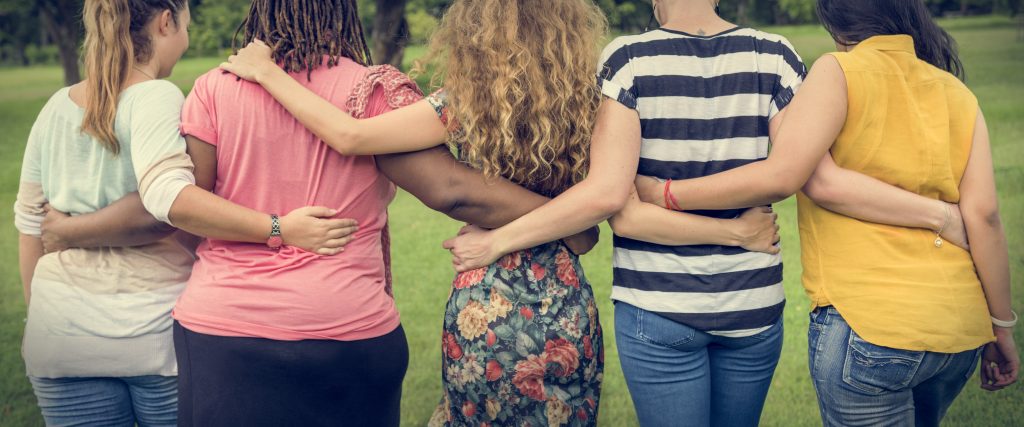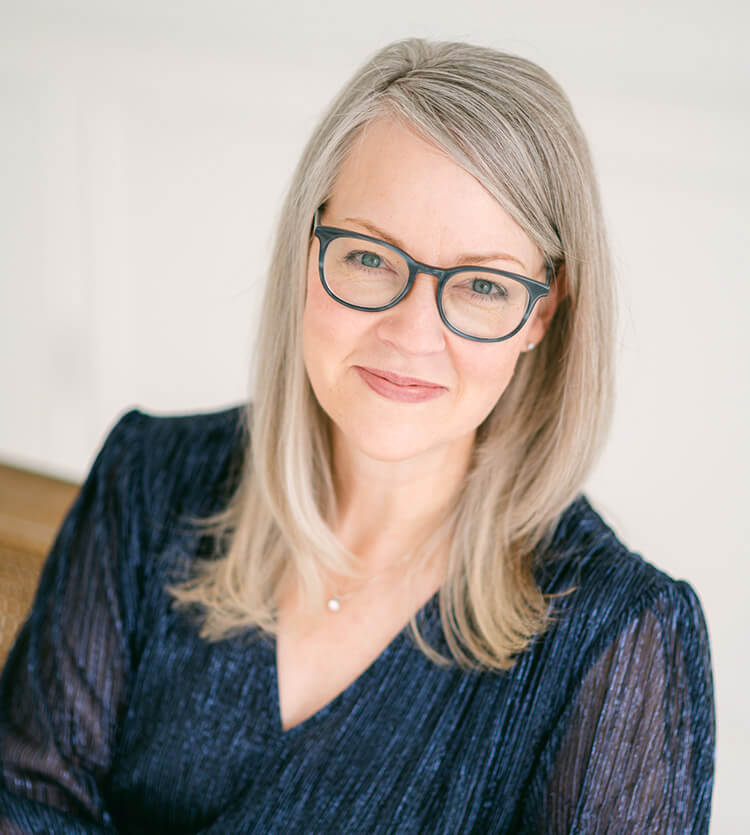She wondered if she was going crazy.
All she ever wanted was to be a good Christian wife and mom, and she gave her marriage and home all the love, energy, and support she had inside. But something was off in her marriage.
No matter what she did or said, how many marriage books she read, how many conferences on Biblical womanhood she attended, or how hard she tried, she felt like a failure.
She worked hard to keep the house clean so her husband had a peaceful place to come home to after work, but she was always falling behind. He made little comments about the dirty bathroom or the clothes the kids were wearing. Keeping the children clean and well-behaved so they wouldn’t bug her husband was a stressful, full-time job all by itself.
She avoided asking him for help so he wouldn’t get irritated with her. After all, he worked hard all day providing for them, and she needed to do her part. She felt alone and exhausted.
Oh, sometimes things seemed fine. They could be okay for days. Sometimes even weeks. But then things would begin to fall apart, usually after she had to ask for help, or if she gave him feedback about something she felt was important. This seemed to upset him and turn everything upside down again.
But didn’t all marriages have their ups and downs?
They couldn’t seem to resolve conflict unless she took full responsibility for everything, including what her husband did, and beg forgiveness for implying he might have done anything wrong. When she brought up a concern, it became about her, not the problem she wanted to solve. Her husband repeatedly complained that she was too picky, too whiny, too unforgiving, too angry, too nagging, too silly.
She learned to pick her battles carefully, because once he was upset, she had to endure a tirade of accusations and condemnation. The silent treatment. No favors or help for a while.
She felt bad if she wanted to go out with a friend. He would say little things that made her feel guilty for abandoning her family and forcing him to take care of the kids.
But wasn’t she supposed to lay down her life and serve her husband and family?
Sex was horrible. She couldn’t have an orgasm even though she read books about it and prayed for help. She couldn’t relax. He made little comments about her body and her behavior in bed, and she felt ashamed and stupid. When they had sex, he did it and got it over with. She wanted him to. It felt impersonal and disgusting. He complained about her inability to get into it, but when she tried, he mocked her. There was no emotional connection.
What was wrong with her?
The burden of parenting alone most of the time was starting to break her down. She was getting short with the kids. Exhausted. Burnt out. When he would start in on her, she’d fight back now, saying sarcastic things she regretted later. He would point out what an angry, bitter woman she was. Unforgiving. Disrespectful. He’d tell her “everyone” agreed with him. She had problems.
She began to hate herself.
At church, she made sure to dress up, smile, and keep her kids in order so the other ladies would know she was doing her best to be a Proverbs 31 woman. If they knew the kind of angry, negative things that went through her head, they would be shocked.
Once she told a church friend about something painful her husband had said, but her friend told her she needed to talk about her husband in a more respectful way. She needed to be more forgiving and overlook his sin.
She felt ashamed.
He was a good man. He was faithful to her. He took the family to church. He read his Bible every day. In fact, he knew the Bible so well, he could pull out Bible verses to support his various observations of how bad she was.
She would weep in church when they sang songs about the grace of God. She wanted to feel that grace so badly, but most of the time all she felt was the condemnation of her husband—and God too—because didn’t He speak through the authorities in her life, like her husband and church elders?
She was pretty sure God was disappointed in her failed efforts at creating a happy, peaceful home for her husband and children. She felt so much anger and resentment and hopelessness.
How could God love her like this?
She often locked herself in the bathroom, crying in hopeless desperation on the floor. Begging God to help her be a better woman. Begging God to forgive her. Begging God for some reason to keep trying.
Her mind looped over and over on the same things, mentally spinning in relentless circles.
She was anxious and depressed. She had a panic attack on the road the other day and had to pull over for fear she would black out while driving her young children to school. She was terrified there could be something seriously wrong with her.
When she looks in the mirror now, she hates what she sees: a scared, indecisive, insecure, stressed-out, unhappy woman who can’t seem to do anything right. What happened to the girl she once was?
She feels hopelessly stuck. There is no way out. She made her bed, and now she’ll have to just lie in it until she dies.
Sometimes she thinks dying would be better than living this way another day.

Hope’s relationship with her husband is not good, either. But she sees what’s going on, and she has a new lease on life since she started making some changes in the way she lives.
Hope doesn’t get into many arguments with her husband anymore—mainly because she refuses to engage him. She now walks away when he starts to accuse her and demean her opinions.
When her husband acts like he loves her for show or because he wants sex, Hope has zero expectations. She knows it isn’t real. She’s accepted the truth and lives in reality. She also knows she is never really alone, and her faith is strong.
Hope’s not afraid to try new things and get her husband’s criticism. His opinion of her is not stronger than her own opinion of herself. And now—she likes herself. She’s comfortable in her own skin. When she tries and fails, she sees it as a learning opportunity and tries something new.
When Hope needs help with the kids, she asks him. If he helps begrudgingly, she doesn’t care. She no longer feels responsible to manage his emotions.
In church Hope wears what she wants—blue jeans and a sweater. Her kids aren’t the best behaved, but she knows they are kids, and she doesn’t expect perfection. If people cluck about it, she doesn’t take it personally. She now believes the opinions of others are just that—opinions. And she knows God’s opinion is the only one that counts.
Hope doesn’t talk about her husband at church. Frankly, he’s not on her mind all that much, anymore. She feels separate from him—able to live her own parallel life next to him. She’s pretty sure the folks at church wouldn’t think that was very “Christian” of her, but she’s now confident that managing her husband’s happiness and ego are not her responsibility. That’s HIS responsibility.
Hope’s faith is strong. She doesn’t live by all the man-made laws around her. She lives in the light and joy of the gospel of Jesus. She is FREE in Him, not relying on her own goodness, but on His grace.
The mental circles Hope used to entertain in her head are quiet now. She is focused, not on her critical, demeaning husband, but on Jesus, her hobbies, her children, her friends, and her new career.
She looks in the mirror and likes what she sees: a confident, decisive, secure, relaxed, happy woman who is doing her best.
She is all grown up, and it feels good.

If it’s Julie, you’re probably wondering what in the world is going on in your life? And how in the world did I know about it? (Was I spying on you?)
Both Julie and Hope are in emotionally abusive relationships. How do we know this?
Good marriage relationships are marked by MUTUAL love, trust, and respect, and we don’t see those things here. But—maybe they just have a hard marriage relationship? I mean, after all, their husband’s don’t HIT them. So can we even call this ABUSE?
Emotional abuse is when one person in a relationship uses their position of power to take advantage of the other person. The emotionally abusive person assigns the responsibility for their bad behavior to the other person in the relationship. The other person then feels responsible to fix the abusive person. To manage that person’s emotions. To cover for that person’s bad behavior.
Emotional abuse is not always obvious. In fact, most of the time it flies under the radar. We call this covert abuse because it can’t be seen from the outside. It’s undercover. Secret.
Covert abuse isn’t easily identified even by the abuse target because the abuser has gotten into her head, literally planting core beliefs (often utilizing the Bible in the brainwashing process) that create the perfect environment for the abuser to control her thoughts, emotions, and choices—without her being aware of it most of the time.
She’s only aware that something isn’t right, and she can’t fix it.
An emotional abuser uses shame, blame, and half-truths to control his victim’s inner life. If she thinks she has no choices and can never escape and get relief, she will often develop C-PTSD symptoms that erode her emotional and physical health.
If you identified with Julie, you may be wondering how in the world Hope was able to break free and grow up into the confident adult she always dreamed of being?
Julie is stuck because of the core beliefs her husband and religious community plants and reinforces. Some of these beliefs include:
What about Hope? She eventually rejects those core beliefs and effectively replaces them with these:
You’re probably wondering how Hope moved from the first set of core beliefs to the second, more empowering and emotionally healthy set of beliefs.

Both Julie and Hope know their marriage is the biggest problem in their lives, and it’s been that way since the beginning.
But because of her core beliefs, Julie thinks she is responsible for the success or failure of the relationship.
And BECAUSE she thinks she’s responsible, Julie continues to work hard to make the relationship better.
But in spite of working and trying and praying and begging for help, the relationship only gets worse as the months turn into years, and the years turn into decades.
And because her efforts prove fruitless, Julie is starting to break down emotionally, spiritually, and physically.
She believes she is hopeless with zero options.
But Hope made a discovery: SHE WAS NOT RESPONSIBLE for the breakdown of their relationship. Hope realized she had spent years trying (unsuccessfully) to control and cover for her husband’s bad behavior, but controlling these things wasn’t her job.
Her job was to take control of the ONE LIFE God gave her responsibility for—her own—and to let her husband take control (or not) of his own life choices.
This would mean letting him experience the negative consequences of bad behavior. No more managing his emotions. No more trying to appease him. No more hating on herself in order to make him happy. No more believing the lies he told her—or the ones she told herself in order to cope.
Once Hope made that connection—that she wasn’t responsible for her husband’s bad behavior, and the failed relationship wasn’t due to her lack of effort (it was Herculean, for crying out loud!)—she was able to see that she had options she never knew about before.
There were things she could choose to do that would ultimately be a huge game-changer for her.
What about you? Do you feel stuck, like Julie? Let’s talk about where, exactly, you’re stuck.

There are six stages to healing from emotional abuse, and you could be stuck at any one of these stages. (By the way, you can read more about these stages in detail HERE, but come back, because I’ve got something to share with you that you won’t want to miss.)
As you read through these stages, be thinking about where you’d place yourself on this journey.
She is free.
So which stage are you in? Do you feel like you can’t move forward? Like you’ll be stuck in this stage for the rest of your life?
At one point, Hope felt stuck in stage three. She knew too much to go back to the way things were, but she didn’t know how to move forward. Who was she, now? What was she supposed to do with the information she had learned?
Then she discovered something that changed her life. And guess what? It wasn’t more counseling at $150 a pop. (She had spent thousands on Bible counseling by this time!)

She tried marriage counseling with her husband numerous times over the years. He never wanted to go, and when they were in the counseling office, she would inevitably reveal all the personal things she struggled with while her husband kept his stuff locked up tight where nobody could see it.
She knew how it looked. Like she was the problem while he was the ever-patient husband, dutifully putting up with her issues. When she tried to bring up things he did that were hurtful to her, the counselor would say things like, “Now, Hope, you need to just focus on your own sin while forgiving and forbearing with the sins of others.”
So she would keep focusing on her own sin, and somehow—they never got around to his. He would make life miserable for her at home then, so she’d discontinue the counseling in hopeless frustration.
A few years later, she’d try again. Always desperately grasping at straws to try to solve their problems.
When she was diagnosed with anxiety and depression, along with some other related health problems, she decided to get personal counseling. Again, from a biblical counselor—because she was a Christian, after all.
Three years of that, and she was still in the exact same place. Doing everything the counselor said, and still spinning in crazy circles.
She added it up one day—the cost of counseling that didn’t work—and it came to over $18,000.
You know what she was missing?

Support.
She had almost NO one in her life who understood what she was going through. Nobody who could relate. Nobody who “got it.” Nobody she could pour her heart out to and have them just sit and listen and empathize.
Also, she still had NO IDEA how to move forward from knowing and understanding she was in an emotionally abusive relationship—to breaking out of the vicious cycle that kept her stuck in old ruts.
She needed the support of a group of people who were HER PEOPLE. And she needed direction and guidance, in small, incremental steps, to get her from point A to point B—and beyond.
And that’s exactly what she found.

Hope found what she was looking for. A group of women just like her. Women who shared different husbands, but the same story. Women who didn’t judge. Didn’t blame. And didn’t pretend things were okay when they clearly weren’t.
Hope found a place where she could practice being herself without fear of rejection and shame.
Hope found a home for her heart, and she began to heal.
But that wasn’t all. She also found resources that helped her take small, baby steps toward creating healthy boundaries, healing her relationship with God, and taking care of herself for the first time in her life.
These resources gave her the guidance she needed to get rid of the toxic core beliefs that kept her stuck in the cycle of abuse—and replace them with the healthy core beliefs I told you about at the beginning of our story.
Core beliefs that strengthened her, grew her up, and set her free.
Hope discovered that she was not alone. There were thousands and thousands of women exactly like her, and many of them were courageously stepping out of their comfort zones to disengage with unhealthy relationships and ENGAGE with God, themselves, and others who were on the same road to healing and wholeness.
Once Hope had the tools and support she needed, she was finally, at long last, able to make tremendous progress in her personal life.
What about you? Do you wish you had what Hope has?

My name is Natalie Hoffman (you can read more about me and what I do HERE), and I lived in an emotionally and spiritually abusive relationship for 25 years. Hope and Julie are a composite of my life and the hundreds of women I’ve talked to and read about over the past six years.
Once I was on my way out of my own toxic relationship, I had a fire in my belly to turn around and go back and support other women of faith on their journey up and out of emotional and spiritual abuse.
That’s how the Flying Free community began. I started by writing blog posts about emotional abuse directed at women of faith, in particular. But I was getting emails every single week from women asking for more.
Get the first chapter of my book, Is It Me? Making Sense of Your Confusing Marriage, recommended by therapists. That chapter will help you figure out what’s going on in your marriage.
Copyright © 2024 Flying Free. All Rights Reserved.